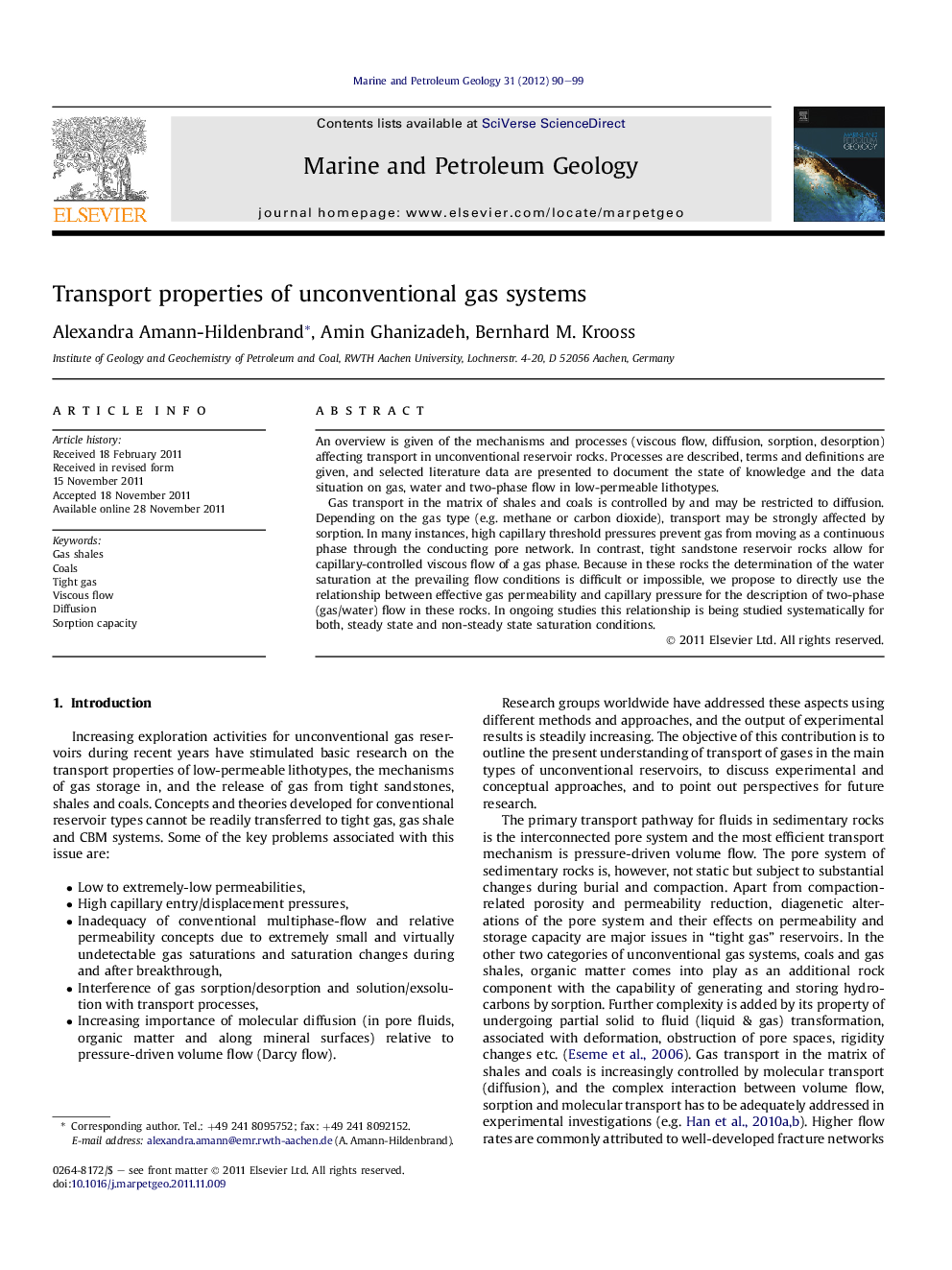| Article ID | Journal | Published Year | Pages | File Type |
|---|---|---|---|---|
| 4695937 | Marine and Petroleum Geology | 2012 | 10 Pages |
An overview is given of the mechanisms and processes (viscous flow, diffusion, sorption, desorption) affecting transport in unconventional reservoir rocks. Processes are described, terms and definitions are given, and selected literature data are presented to document the state of knowledge and the data situation on gas, water and two-phase flow in low-permeable lithotypes.Gas transport in the matrix of shales and coals is controlled by and may be restricted to diffusion. Depending on the gas type (e.g. methane or carbon dioxide), transport may be strongly affected by sorption. In many instances, high capillary threshold pressures prevent gas from moving as a continuous phase through the conducting pore network. In contrast, tight sandstone reservoir rocks allow for capillary-controlled viscous flow of a gas phase. Because in these rocks the determination of the water saturation at the prevailing flow conditions is difficult or impossible, we propose to directly use the relationship between effective gas permeability and capillary pressure for the description of two-phase (gas/water) flow in these rocks. In ongoing studies this relationship is being studied systematically for both, steady state and non-steady state saturation conditions.
► Mechanisms of gas transport in unconventional gas reservoirs are reviewed. ► Darcy flow, diffusion, gas sorption and capillary effects are considered. ► The interrelationship of different transport mechanisms is discussed. ► Limitations of fluid flow measurements in low-permeable rocks are addressed. ► Examples are provided from ongoing laboratory experiments.
